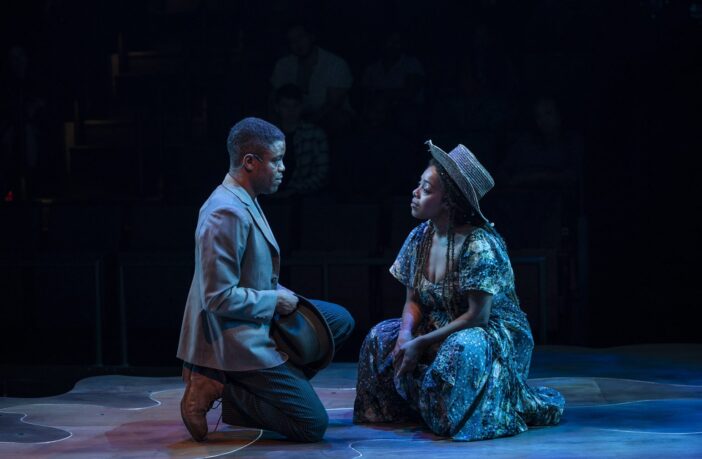Jeremy Jones, music director of “Lucy and Leroy” at Steppenwolf Theatre from Oct. 26 to Dec. 15, 2024, brings his South Side Chicago roots to the production. The gifted director has worked with world-renowned artists such as Yo-Yo Ma and Tye Tribbett. Jones discussed how he infused the production with blues and folk traditions, and how the myth of Robert Johnson shaped the soundscape.
How did growing up on the South Side of Chicago influence your musical style and approach to your career?
I was born into a musical family. My dad was a young amateur musician who loved to play. He instilled that love into me, my older brother and my younger brother at a very young age. It always kept us in music programs that allowed us to be creative and allowed us to express ourselves. The South Side didn’t have a large [number]of musical opportunities. I was able to partner and work with different organizations. Those small opportunities allowed me to learn, allowed me to express myself and allowed me to build on the musical skills that my dad had instilled in me at a young age.
How did the story of Leroy and Lucy help shape the musical direction you took for the production?
It’s really the myth of [Leroy] that did it. It’s the idea of him at the crossroads and him selling his soul, him giving himself for this idea of grand success. So what I did [was], I took the music of the time, the style of the times and the intention of the time and I just did my best to incorporate that into the beautifully written story by [Ngozi], our incredible playwright.
What has been the most rewarding part of working as a music director for “Leroy and Lucy”?
The creative process and the collaboration by far [have]been the best experience. At the end of the day[,] we have multiple artists who are coming together to share this story. We have multiple people who are coming with multiple different vantage points from history and from their own life [experiences]. For us to be able to come together and talk about the effects of slavery, the effects of life, and how those stories are always linked back to [their]roots in Africa, it’s been a really cool opportunity to just be in the room and share these experiences. My experience isn’t Jon’s experience, it might not be Britney’s experience, but we’re all able to share commonalities and understand, and most importantly, to be able to shift on the transitions that people make in life, which is a really cool visual to see in the play. You get to see the growth that cycles the change.
What do you want audiences to feel or experience through the music of “Leroy and Lucy”?
I want people to feel the passion. I want people to be in the moment and to hear what’s being said. I think that sometimes music could be a distraction. So what I wrote was something that was designed [for]people to hear what [was]being said. I hope that people [can]come away with this and have a different understanding of the root of a lot of America’s popular music, which comes out of the blues, which comes out of the South, which comes out of that pain. I wholeheartedly believe that blues is folk music. America’s folk music has had a comparable impact on what popular music is today. I want people to hear what’s being said and then I’m hoping that I can inspire folks to say, “Wow! Where did this start and does this end?”



